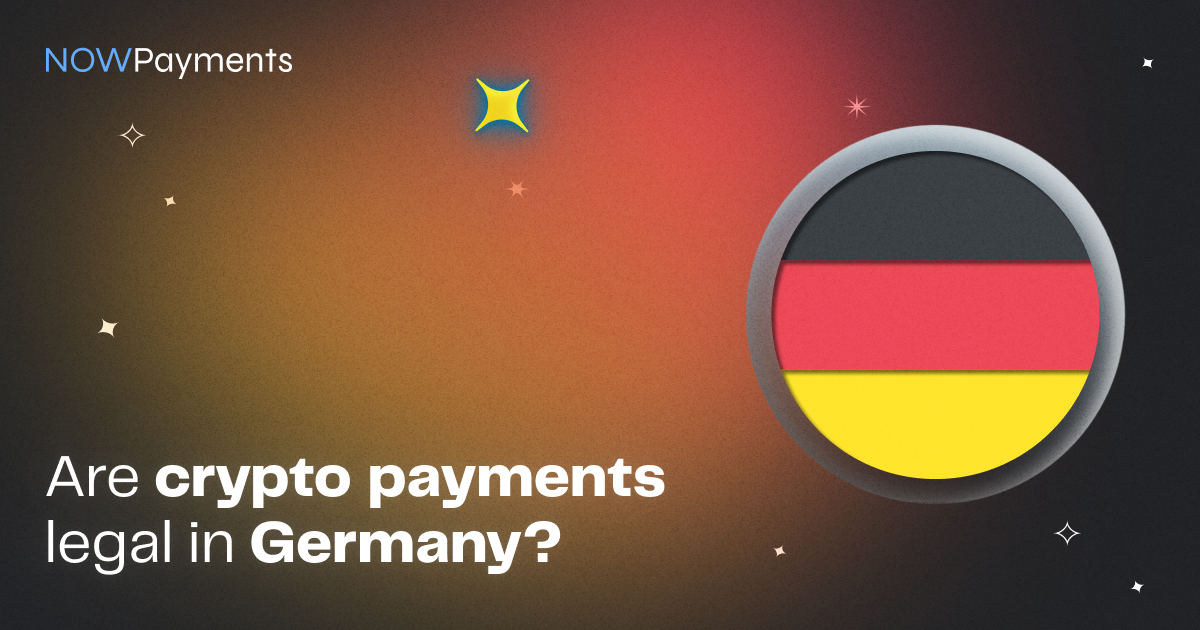Transactions involving cryptocurrencies are becoming more frequent across Germany as digital currencies gain popularity. In a 24-page document published on May 12, 2022, Germany’s Federal Ministry of Finance shared the decision, which formally defined blockchain concepts like mining, staking, airdrops, and masternodes within the framework of the nation’s tax system.
Germany is continually putting forth progressive legislation that enables its citizens to understand the legitimacy of cryptocurrency payments in the country. Here, taxation and regulation of cryptocurrencies foster a stable business environment for launching new ventures involving Bitcoin and other virtual currencies. Let’s discuss further how German regulators define crypto assets and how they are taxed.
- Virtual currencies are legal in Germany and are recognized as private money.
- Crypto assets are not taxed if the overall profits are less than 600 EUR or if they have been held for more than a year.
- German residents can start accepting cryptocurrency payments with a free NOWPayments account.
Can I Accept Crypto payments in Germany?
Yes, you can accept crypto payments while residing in Germany. Amendments to the German Banking Act (KWG) specifically permit the custody of virtual currencies.
The German Federal Central Tax Office, or Bundeszentralamt für Steuern (BZSt), recognizes Bitcoin and other digital currencies as private money. Germany strictly complies with all EU anti-money laundering (AML) directives as a member state. This means that crypto exchanges that are based in Germany or service German residents are required to adhere to the “Know Your Customer” (KYC) and AML requirements.
Usually, the user’s personal information, including identity and residence proof, is requested when opening a crypto account. Germany abides by the Financial Action Task Force’s (FATF) Travel Rule Guidance recommendations, which establish the minimum amount for disclosing specific recipient and receiver identifying information for cryptocurrency transactions exceeding 1000 EUR/USD.
Cryptocurrency in Germany is regulated by the Federal Financial Supervisory Authority, or BaFin. As the nation’s financial regulatory body, BaFin oversees regulated activities for both conventional fiat banking and virtual assets.
Tax on Crypto Assets in Germany
According to the German Tax Acts, cryptocurrency is not regarded as property, legal tender, or foreign currency. Under Section 23 of the German Income Tax Act (EStG), your overall profits are tax-free as long as they are less than 600 EUR. The same income forms used for reporting wages and other sources of income also should include information about cryptocurrency earnings.
Any profit is subject to taxation as income if it exceeds 600 EUR in cryptocurrency profits for the year and you held the assets for less than a year. Whether you are exchanging one cryptocurrency for another or for fiat money, it is a taxable sale under Section 22 of the Income Tax Act. Fees associated with trading or withdrawals may be deducted from the cost basis.
Your effective tax rate will be up to 45% plus the 5.5% Solidarity Tax, which is the same as your regular income tax rate. However, you won’t pay any tax at all on your cryptocurrency gains if you keep your assets for a year or longer.
How Can I Accept Crypto Payments in Germany?
Registering for a free NOWPayments account will allow you to accept cryptocurrency payments and donations. This non-custodial cryptocurrency payment gateway provides a wide range of tools for German residents, including:
- Plugins. With the integration of payment gateways into popular CMS platforms like WooCommerce, Magento 2, Zencart, OpenCart, and WHMCS, online stores can begin accepting cryptocurrency payments.
- Cryptocurrency API. Gives you the option to integrate a cryptocurrency payment service specifically into your website, platform, or mobile application.
- Payment links. Provide customized payment links so that your clients can pay their invoices in fewer steps.
- Billing. Accept cryptocurrency payments on a recurring basis for any period of time (weekly/monthly/yearly).
- Fiat withdrawals. With automatic fiat conversions, you can withdraw funds straight to your bank account.
- Point of sale (POS) terminal. Provide your customers with a straightforward way to use their cryptocurrencies in your physical, offline store.
- Mass payouts. Send multiple cryptocurrency payments to different wallets without having to manually process each one.
Currently, the NOWPayments platform supports more than 150 cryptocurrencies. Advanced analytics can be used to monitor all payments and invoice your customers. Automatic conversions also give you the option to choose the currency that best meets your needs while still allowing your customers to use any other available coins.
To begin accepting cryptocurrency payments, just follow these easy steps:
- Create an account by entering your email address, verifying it, and adding the wallet address to which your payments will be sent.
- From your account dashboard, click the Payment Link tab, choose Payment Tools, and then create a payment link. Select the currency and amount after clicking the Create payment link in the pop-up window.
- Both an order description and an ID are optional. Click again to verify and copy your payment link, which you can then send to specific recipients or insert into your website.
Conclusion
As of 2022, cryptocurrency payments and other ventures involving cryptocurrencies, like donations, mining, and trading, are legal in Germany. Profits made on cryptocurrency transactions are taxed at the regular income tax rate if they exceed 600 EUR and the assets were held for less than a year. Otherwise, the profits are tax-free.
Not only in the European Union but also globally, Germany is at the forefront of sensible cryptocurrency regulations. German residents can start accepting crypto by registering for a free NOWPayments account.

